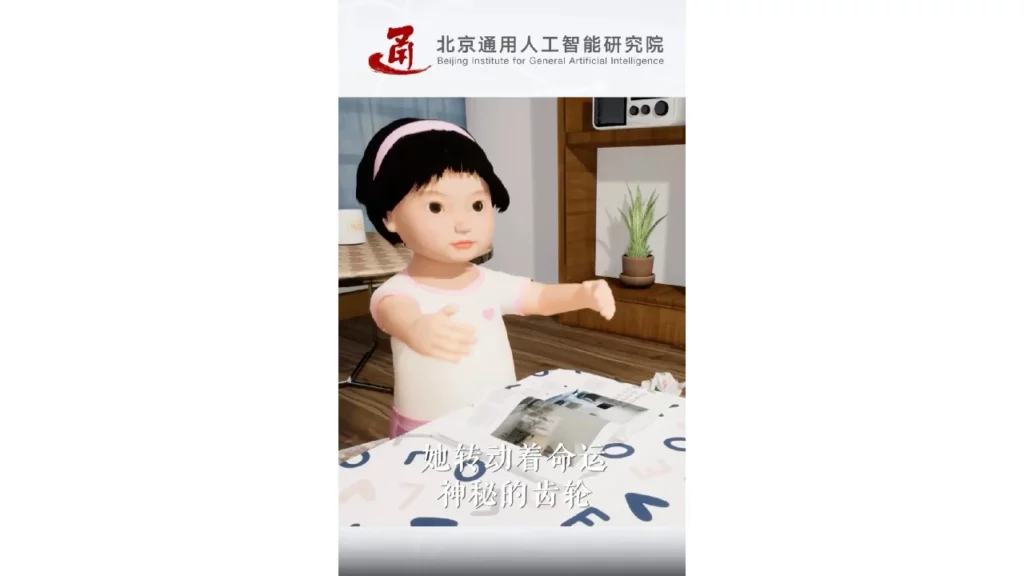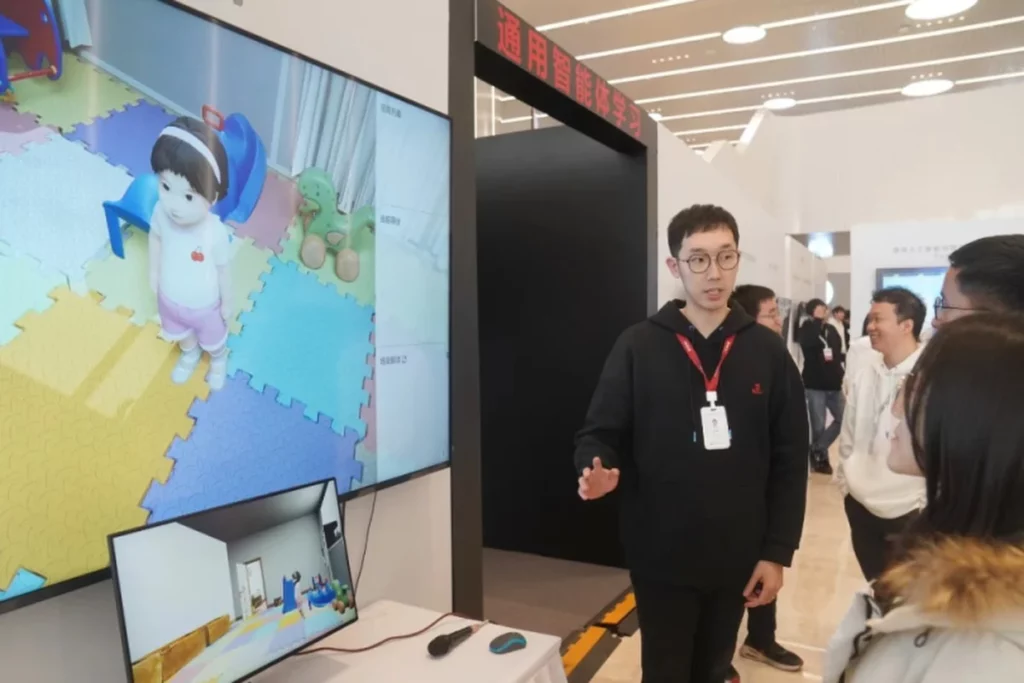In a remarkable stride forward in artificial intelligence, Chinese scientists at the Beijing Institute of General Artificial Intelligence (BIGAI) have introduced an extraordinary creation – Tong Tong, a human-shaped AI doll. This innovative doll, resembling a three-year-old child, possesses emotional development and cognitive abilities akin to a human child of the same age. The unveiling of Tong Tong represents a significant leap in AI technology, capturing the attention of audiences worldwide.
The debut of Tong Tong occurred at the Frontiers of General Artificial Intelligence Technology Exhibition, where the AI doll impressed attendees with its striking human-like qualities. Reports from local media emphasized Tong Tong’s ability to engage with individuals while displaying emotions and responses reminiscent of a young child.

With emotional intelligence and a vocabulary of over 600 words, Tong Tong demonstrates learning capabilities comparable to a human toddler. Its capacity to learn and adapt independently to various situations further highlights its advanced abilities.
ALSO READ: The Emergence of Animation with Artificial Intelligence
During the exhibition, Tong Tong showcased its talent for tasks such as environmental cleanup, demonstrating its ability to understand and respond to its surroundings. Notably, its inclination to autonomously address discrepancies in its environment resonated with observers, showcasing its problem-solving skills.

BIGAI’s Director, Zhu Songchun, unveiled ‘the Tong test,’ marking a significant advancement in assessing artificial general intelligence. Unlike the traditional Turing Test, which primarily focuses on human-AI communication, the Tong test encompasses a broader range of parameters, comprehensively evaluating AI capabilities.
ALSO READ: Differentiating Computer Vision and Artificial Intelligence: What Sets Them Apart?
In a conversation with the South China Morning Post, Zhu elaborated on BIGAI’s vision for advancing general artificial intelligence, highlighting the importance of creating entities capable of comprehending the complexities of the real world while possessing diverse skill sets. He emphasized that Tong Tong represents a departure from conventional AI-powered robots, as it transcends physical constraints, embodying a virtual form with unparalleled cognitive abilities.
Tong Tong’s emergence signifies a pivotal moment in achieving artificial general intelligence, with implications extending beyond conventional AI models. With its unique blend of autonomy, emotional intelligence, and cognitive prowess, Tong Tong heralds a new era in AI development, offering promising insights into the future of human-machine interaction.









